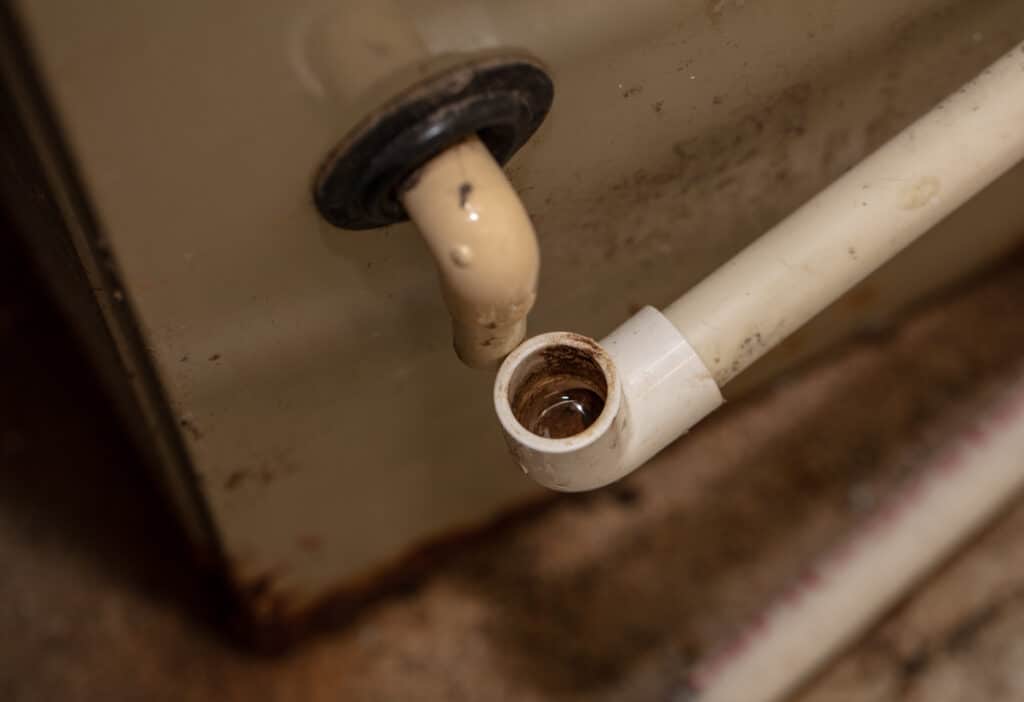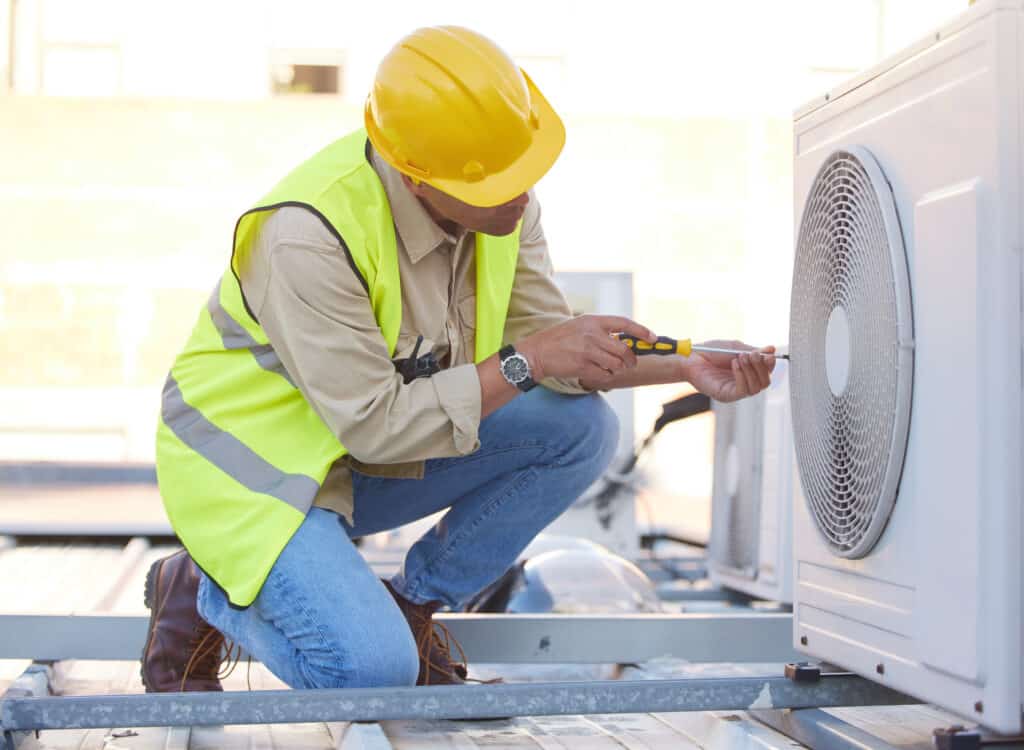While it’s not the season to use our ACs quite yet, that time is just around the corner. And when that warm weather hits, it’s important to be prepared for it. If you have an older AC, sometimes it won’t work as expected when it hasn’t been turned on in a while. If your AC stopped working, let’s explore the possible reasons as to why and what you can do to fix the issue.
Tripped Breaker or Blown Fuse
If your breaker tripped, you’re in luck! That is one of the easiest fixes because it only requires that you find your breaker and flip the switch. If that doesn’t do the trick, it may also be a blown fuse.
This can happen due to too many amps reaching your unit at once, which causes the condenser to work overtime and can lead to a blown fuse. A quick clean-out of the filter or condenser coils can solve this problem.
Emergency Shutoff
Another quick fix is if your AC unit has the emergency shutoff switch turned off. This only happens if a drain is clogged to prevent water damage in your home, so ensure there are no issues with your drain first. Once it’s confirmed that everything is good, check on your unit and ensure that the switch is in the on position.
 Weather Damage (From Wind, Rain, And Debri)
Weather Damage (From Wind, Rain, And Debri)
If your AC stopped working after a big storm, the damage might be caused by wind, rain, or extreme weather like snow. When a winter storm hits and ice gets into your unit, that can cause a slew of issues if you turn it on before it’s had time to melt. Plus, wind can knock tree branches onto your unit and stir up other debris that causes serious damage to your filters, drains, blades, and the system as a whole.
Blower and Fan Failure
Especially after a long winter, your unit’s blower may have seized up. You will know if there’s a problem with it if you can’t feel air coming from your vents or sound coming from the motor.
The solution? It’s time to call a professional to replace the blower or fan.
One thing to note is that the fan runs year-round to both cool and heat your home. Regular maintenance of your system can help prevent a blower or fan failure before it shuts down your entire unit.
Clogged Drain
A clogged drain is never a good sign, especially when it comes to your AC unit. Debris or mold that collects within the line can cause a blockage, or perhaps your drain pipes weren’t installed with the proper slope to allow water to pass freely through them. When your condensate drain line becomes clogged, it can shut your entire system off and cause serious damage.
 How To Prepare Your AC For Spring
How To Prepare Your AC For Spring
While your fans run year-round and act as both a heater and cooler, your AC unit still needs some prep after a harsh winter to work properly. Here are a few things you can do to get your unit ready for the heat.
Clean Debris Around The Condenser
As with any piece of equipment, debris like dirt, leaves, and twigs can get trapped and interfere with your AC unit’s ability to work properly. The first thing you should do when the ice begins to melt is clear space on all sides of your unit and get the build-up of debris off the top to ensure it can ventilate and regulate itself.
Change The Air Filter
Filters get clogged from hair, dust, and pollen and can restrict airflow to your home if you don’t change them regularly. While a clogged filter won’t shut off your unit, it can cause your system to overheat.
It can also cause parts to wear out quicker than normal or affect the coil and condenser, which can lead to a more serious problem down the line. Luckily, air filters are easy to change on your own, so this is a quick fix you can schedule before spring comes around.
Schedule A Tune-Up
The air filter is always the first item on your tune-up to-do list. It’s a quick fix that keeps your unit running smoothly for months. The next step is to ensure you have a clear space around your entire condenser to keep it functioning properly.

Air conditioning, technician or engineer on roof for maintenance, building or construction of fan h.
Then, head to the drain line to clean that out too. A great home remedy you can use is ¼ cup of distilled white vinegar poured into the lines every three months. In the same vein, check the overflow pan to ensure your drain line is functioning properly.
Two more things to check on: the fins on your condenser coils and pipe insulation. Fins can become bent through no fault of your own, but straightening them out can cause your unit to become more efficient.
Insulation is also key to ensuring your unit is functioning to the best of its ability. If it’s broken down over the year, replacing it will aid in keeping you cool during the hot summer months.
Leave It To The Professionals At Swan Home Comfort
If your AC stopped working, there’s no reason to panic. There are a few quick fixes you can try before it’s time to call in the professionals. If you’ve run through your tune-up checklist and want a little more peace of mind heading into the warmer months, call Swan Home Comfort


